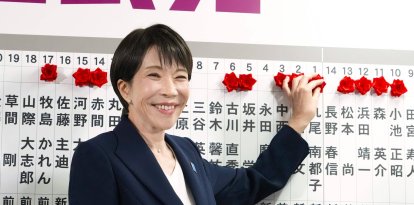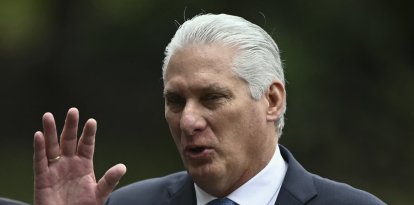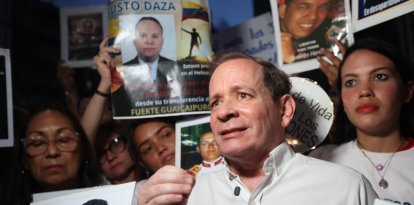The turbulent history of South Korea's presidents
Since the country was divided after the end of the Korean War, few South Korean presidents have been spared tragic endings or controversy.

South Korean newspapers after the crisis provoked by Yoon Suk Yeol
Imprisonment, overthrowing, assassination, death sentences and suicide: Before Yoon Suk Yeol was threatened with impeachment, almost all South Korean presidents have come to a bitter end.
Only Moon Jae-in (2017-2022), Kim Young-sam (1993-1998) and Nobel Peace Prize laureate Kim Dae-jung (1998-2003), architect of a rapprochement with North Korea, have ended their terms without a hitch.
However, Kim Dae-jung was sentenced to death for sedition in 1980 during the dictatorship of Chun Doo-hwan, of whom he was an opponent, before going into exile in the United States.

South Korean presidents throughout history
Park Geun-hye: Impeached and imprisoned
President Park Geun-hye, in power beginning in 2013, was impeached by the National Assembly on Dec. 9, 2016, and subsequently charged and imprisoned.
South Korea's first female president, who presented herself as incorruptible, was accused of receiving tens of millions of dollars from South Korean conglomerates such as Samsung, sharing secret documents, "blacklisting" artists critical of her administration and firing officials opposed to her abuses of power.
The daughter of former dictator Park Chung-hee was sentenced in 2021 to 20 years in prison but was pardoned in December 2021 by her successor, Moon Jae-in.
Lee Myung-bak: 15 years in prison
Lee Myung-bak, who ruled from 2008 to 2013, was sentenced in October 2018 to 15 years in prison for corruption after being convicted of accepting bribes from Samsung to favor the conglomerate's chairman, Lee Kun-hee, who had been convicted of tax evasion.
He was pardoned in December 2022 by current President Yoon Suk Yeol.
Roh Moo-hyun: Suicide
Roh Moo-hyun, president from 2003 to 2008, committed suicide by throwing himself off a cliff in May 2009 when he was under investigation for the payment of $1 million to his wife and $5 million to the husband of his niece, both from a shoe manufacturer.
Roh Tae-woo: 22 years in prison
Roh Tae-woo, elected after the fall of autocrat Chun Doo-Hwan, whom he helped to come to power, ruled South Korea from 1988 to 1993. In 1996, he was sentenced to 22 years in prison for corruption and treason. He was granted amnesty two years later and died of leukemia in November 2021 at the age of 88.
Chun Doo-hwan: Sentenced to death
Chun Doo-hwan was nicknamed the "Butcher of Gwangju" for ordering the bloody crackdown in this city after coming to power in 1980. A wave of pro-democracy demonstrations forced him to hand over power to Roh Tae-woo in 1987.
In 1996, he was sentenced to death, later commuted to life in prison. He was amnestied in 1998 after two years in prison. He died of leukemia in 2021.
Park Chung-hee: Assassinated
Dictator Park Chung-hee died in October 1979 from a shot to the head by his top intelligence officer. Eleven years earlier, he escaped an assassination attempt by a North Korean commando infiltrated into Seoul.
Chun Doo-hwan and Roh Tae-woo, then army generals, took advantage of the political turmoil to foment a coup in December 1979. Chun assumed the presidency in 1980 after the Gwangju massacre and after obtaining the resignation of then-Pesident Choi Ky-ha.
Yoon Bo-sun: Overthrown
President Yoon Bo-sun was overthrown in 1961 by a coup d'état led by General Park Chung-hee, father of future President Park Geun-hye.
General Park kept Yoon in office until he replaced him in March 1962, and exercised authoritarian power until his assassination in 1979.
Syngman Rhee: Deposed and exiled
South Korea's first president, Syngman Rhee, elected in 1948, was forced to resign by a student-led popular uprising in 1960 after attempting to prolong his term in office through rigged elections.
Rhee went into exile in Hawaii, where he died in 1965.

























